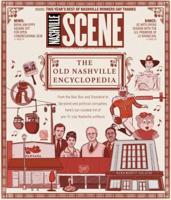This year alone, the Salvation Army’s Angel Tree program provided Christmas gifts for about 3,600 Middle Tennessee families, which works out to around 8,000 people.
The Angel Tree program began in Virginia, but it really took root in Nashville. The couple who started the program grew up in the Salvation Army — a church derived from Methodist beliefs — and came up with the idea in 1979.
Charles and Shirley White were working with a mall in Lynchburg, Va., to come up with ideas to help families in the area when Shirley walked into a Hallmark store and saw cards with images of angels on them. She decided then they would use the cards to write out the wants and needs of local impoverished children and then put the cards on a tree in the mall to be bought by passing shoppers. The first year, the program served more than 700 people in Lynchburg.
A few years later, the Whites brought the tradition to Middle Tennessee when they were moved to work for the Salvation Army in Nashville. Through collaboration with the Grand Ole Opry, which was the first Angel Tree co-sponsor, the program gained national attention.
“It didn’t seem like much when it was happening,” says Shirley White. “We were just doing what we thought was needed and this seemed like a good way to do it. But people really grabbed on to the idea, especially when we started doing it in Nashville.”
The program serves children up to 12 and senior citizens. Families apply in advance and must meet certain criteria in order to receive gifts. Amy Lee, the area commander for the Salvation Army, has worked for the church for 23 years.
“We could not do this without volunteers, there are only three or four paid staff here, we rely on about 3,000 volunteers to come in,” Lee says.
The process takes a lot of work, she says. Each Angel Tree family gives a list of wishes and needs, which are then written onto a “tree,” which is also assigned a number. Community members then pick up the “trees” and buy as many items on the list as they can or want to. Those gifts are then turned into the Salvation Army, who fills in any leftover wants or needs, and then it’s all sorted and placed for families to come pick up.
“It’s a great way for the community who might have a little more to give to those who don’t, and it gives a Christmas to families who really wouldn’t be able to provide that otherwise,” Lee says. “Kids often don’t know how or whether they’re poor: They just want the same things other kids want.”





